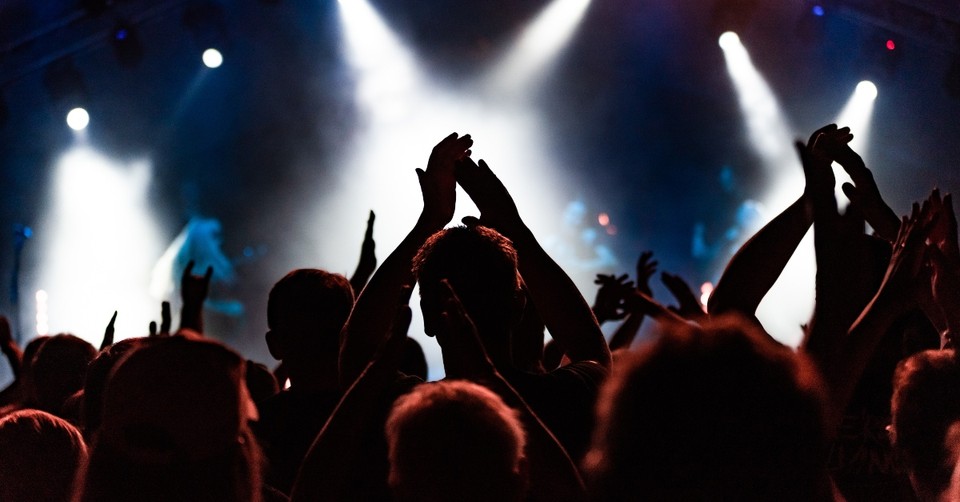Is it Wrong for the Congregation to Clap after Worship Songs?

Have you ever noticed that in many churches, after almost every worship song, the congregation claps? Have you ever thought: why do we clap? And for whom are we clapping? Do you feel conflicted and confused about it: should I clap, should I not clap?
To be honest, I have often felt conflicted by this practice, which is why I wanted to research this topic, to come to some kind of conclusion for myself. And I also have to believe that there are others like me, who’ve wondered and felt the same, conflicted and confused.
I realize that this article may open Pandora’s box, that there will be strong opinions on both sides: for clapping after every worship song and against it. I pray that this article helps those on both sides of the issue by shedding clarity on this practice.
As always, let’s begin by looking to Scripture, our authority on all matters holy and sacred.
Scriptural Support
In Hebrew, worship translates, “do homage; to bow down; to prostrate one’s self.” Given this definition, we see immediately that worship literally involves physical expression—a bowing down, a prostrating of the body. We also understand that that expression is one of humility and submission, as in bowing down to the One in authority.
I don’t believe any true Christ-follower disputes this, or the fact that we are to worship God, both privately and in community. Where the dispute arises, however, is in the application of expression. While some denominations welcome overt physical expressions during worship—clapping, calling out affirmations of “Amen!” and “Yes, Jesus!,” shouting, feet stomping, dancing, swaying, crying, hand-raising—others do not. They prefer more quiet, less demonstrative forms of expression, such as kneeling, folding the hands, bowing the head, and standing.
None of these expressions is wrong. In fact, most of them find their support in Scripture, indicated by numerous instances where ancient Israelite worship involved bowing down, the raising of hands, singing, speaking aloud affirmations to the Word of God, dancing, and the playing of instruments.
And, yes, clapping. However, depending on the context, clapping signified different things:
- Praise, in response to God’s attributes (Psalm 47:1-2), “O clap your hands, all ye people; shout unto God with the voice of triumph. For the Lord most high is terrible; he is a great King over all the earth.”
- Rejoicing, in response to God’s marvelous works and salvation (Psalm 98:8), “Let the rivers clap their hands, let the mountains sing together for joy.” And also Psalm 47:1, “Clap your hands, all you nations; shout to God with cries of joy.”
- Approval, in response to Jehoiada’s son being crowned king (2 Kings 11:12b), “The people clapped their hands and shouted, ‘Long live the king!’”
- Mockery, in response to Jerusalem’s downfall (Lamentations 2:15), “All who pass your way clap their hands at you; they scoff and shake their heads at Daughter Jerusalem.”
- Judgment, in response to wickedness (Ezekiel 6:11), “This is what the Sovereign LORD says, ‘Strike your hands together and stamp your feet and cry out, ‘Alas!’ because of all the wicked and detestable practices of the people of Israel.”
The Psalms come the closest to supporting the practice of clapping during—which invites community participation—and after a worship song, yet only as a celebratory and joyous response to the attributes and works, particularly salvation, that God has done.
Interestingly, New Testament writers were silent on the practice of hand clapping, in any context, which some scholars interpret as clapping is now unwelcomed and unacceptable during and after worship songs.
Approval of Man or Affirmation of God?
The role of those who facilitate worship—whether contemporary or traditional—is to lead the congregation in music that exalts God and draws the people’s hearts closer to him. They are not to do it for self-glorification and not to win people’s approval.
For some in the congregation, though, it is just that: their applause reflects their approval and appreciation, of either the leader, the worship team and their talent, or the song choice, but not necessarily as an outpouring of worship to God. While their motive may not be pure, it is the responsibility of the Holy Spirit to confront it and transform it.
And it is also the responsibility of the worship leader to instruct the congregation, lest the people make idols of the musicians, says worship leader Kristen Gilles, who knows this dilemma well.
“It’s hard for us leaders not to attempt to measure our worth by the responsiveness of our congregation to each song. We should not be measuring “our” success as worship leaders in this way, but it’s a temptation every worship leader must confront,” she says. “We teach that clapping is our applause of His great name, done eagerly in celebration of the salvation we have received by grace through faith in Christ’s redemptive work on our behalf. They shouldn’t clap to applaud and honor the musicians and singers, but they should not fear or hesitate when it comes to applauding our great God.”
For others, however, clapping after a theologically-rich and God-inspiring song is a natural expression of the joy they feel towards their heavenly Father. Their clapping is an affirmation (and adoration) of their good God and is a physical way for them can show their appreciation and gratitude.
Sacred Response or Ritual?
Ritual is defined as “a set form of worship.” Some denominations practice certain rituals within their worship services: the weekly reciting of certain prayers and congregational responses, genuflecting, making the sign of the cross, etc.
As with any ritual, it can become rote, empty, and meaningless over time. This could include the clapping of hands after every worship song. Clapping can lose its impact, become rote, and can actually lessen and detract from the sacredness of the spiritual experience of worship. Soon, people do it as an automatic response, without giving thought as to why they are clapping.
Couple clapping with this danger and that of showing approval of man, many churches discourage clapping during and after singing altogether. States Macland Road Church of Christ in Marietta, GA: “Applause is one way in which humans show approval to other humans. But mere humans must not be the objects of worship at all (Acts 10:25-26; Revelation 22:8-9), and so we do not applaud humans in worship. It is logically possible that man could applaud God, and yet God never asked man to applaud Him. (It makes sense that God would not ask us to show appreciation to Him in the same way in which we would show appreciation to a baseball player or a musician.) So, there is no legitimate object of applause in worship.”
As well, some individuals have made a personal decision not to clap after a praise song. Writes Eirena Ewert in her blog, “I do not see anything wrong with clapping hands during worship, along to the beat of the music. What I do not feel comfortable with is clapping after each song. We have already sung glory to God. What is the clapping for? It is not that I don’t want to give credit to Jesus for dying on the cross for my sins. It seems like clapping for Jesus after singing to God is a little redundant.
Motive Matters
There are various reasons why people clap after a worship song. They may clap out of peer pressure because everyone else is clapping, and they don’t want to draw attention to themselves or appear self-righteous by not clapping. They clap because it’s the “thing to do,” which harkens back to ritual. They clap because they think the worship leader is great and doing a fabulous job. They clap because they like a particular song. They clap in genuine response to the song’s powerful, rich words, which moved them to truly worship God.
Says Pastor Bob Kauflin, “What we do with our bodies is meant to reflect what’s taking place in our hearts. Any kind of physical expression, clapping or otherwise, is unacceptable as worship to God unless it springs from a heart that truly loves God or desires to love Him more.”
When it comes to the physical expression of our worship, motive does matter. It matters greatly to God. He wants our entire focus to be on him and about him. He will not share our affections or adoration with anyone else, including the worship leader and worship team. He alone deserves all the honor, glory, and praise, which includes our clapping.
Ligon Duncan, Chancellor at Reformed Theological Seminary, says, “The manner of our public worship matters. The main reason for this is…that the Bible itself, in both the Old and New Testaments, commands a number of important things about how we are to conduct ourselves in gathered worship. Worship is not about what we want or like (nor do His appointed means divert our eyes from Him), but rather it is about meeting with God and delighting in Him.”
Conclusion
How we express our delight, affirmation, and adoration of God is a matter of each individual’s heart, as each one worships in spirit and in truth (John 4:24). Whether our physical expression includes bowing our heads, kneeling, dancing, singing, raising our hands, and yes, clapping (during and after a song), all of it must be done to and for the glory of God.
“Worship is a spiritual event, and true worship comes from the heart. If our worship is not heartfelt, it doesn’t matter what posture or expression of worship we use,” says GotQuestions.org.
Do you think clapping enhances or detracts from worship? What do you believe is the true purpose behind it? Join the conversation on Crosswalk Forums!
Photo Credit: Pexels/Wolfgang

Originally published May 15, 2025.







